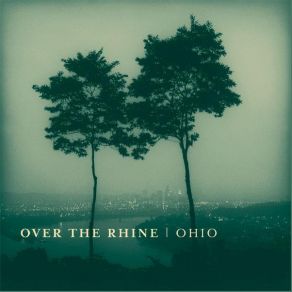Ohio
Download links and information about Ohio by Over The Rhine. This album was released in 2003 and it belongs to Rock, Folk Rock, Alternative, Songwriter/Lyricist, Psychedelic genres. It contains 20 tracks with total duration of 01:29:44 minutes.

|
|
|---|---|
| Artist: | Over The Rhine |
| Release date: | 2003 |
| Genre: | Rock, Folk Rock, Alternative, Songwriter/Lyricist, Psychedelic |
| Tracks: | 20 |
| Duration: | 01:29:44 |
| Buy it NOW at: | |
| Buy on iTunes $9.99 | |
| Buy on Amazon $8.99 | |
| Buy on Songswave €1.30 | |
| Buy on Songswave €1.33 | |
Tracks
[Edit]| No. | Title | Length |
|---|---|---|
| 1. | B.P.D. | 4:33 |
| 2. | What I'll Remember Most | 4:28 |
| 3. | Show Me | 4:22 |
| 4. | Jesus In New Orleans | 5:48 |
| 5. | Ohio | 5:13 |
| 6. | Suitcase | 3:26 |
| 7. | Anything At All | 3:36 |
| 8. | Professional Daydreamer | 4:33 |
| 9. | Lifelong Fling | 5:48 |
| 10. | Changes Come | 5:31 |
| 11. | Long Lost Brother | 4:43 |
| 12. | She | 4:32 |
| 13. | Nobody Number One | 4:16 |
| 14. | Cruel and Pretty | 4:17 |
| 15. | Remind Us | 3:05 |
| 16. | How Long Have You Been Stoned | 3:40 |
| 17. | When You Say Love | 2:45 |
| 18. | Fool | 4:04 |
| 19. | Hometown Boy | 3:57 |
| 20. | Bothered | 7:07 |
Details
[Edit]It's mystifying that the recordings that give listeners all the trouble are the albums that offer a lasting impact. Over the Rhine's Ohio is just such an album. It is a sprawling, two-disc sermon on want, need, recalcitrance, and traditional American spiritual matters viewed in an untraditional manner. Produced by OTR and Mahan Kalpa, it is full of contradiction and represents two different sides of the band's sound. Disc one is almost completely devoid of rhythm and has nothing whatsoever to do with rock & roll; its dynamic is fragmented to the point of being absent in places, and its pace is like that of a slow, controlled, forest burn. Disc two is rhythmically more varied and projects the questions on disc one more forcefully. Emotion, physical desire, and spiritual catharsis are not so artfully stated, making them come to the listener more immediately; and ultimately, there is some haunted spirit of rock & roll present in its tracks. As an album, Ohio, with its sense of tight tracking and meticulous overdubbing, carefully positioned silences, lyrical artifice, and an insistence on absolute control, seemingly turns back on itself and stands in opposition to the rest of the band's catalog, and in places, stands against itself. Because of its utter lack of playfulness and self-conscious seriousness, it seems to move against the grain that rock & roll by its inherent nature, revels in. However, none of this is to be discounted. There is great value in the aesthetic view that Linford Detweiler and Karin Bergquist hold in their collective, velvet-gloved fists. When feeling a record on a gut level as deeply as Ohio demands, it becomes imperative for the listener to observe not only the narrative journeys in the songs themselves, but the one going on in the mirror as well. Ohio is full of OTR's trademark struggle with the fractured beauty, the brokenness, the sacred, the lure to redeem the sensual and the sexual from the tawdriness of popular culture, the revelation in everyday life, the nagging, seemingly eternal doubt that has been discarded as profane or blasphemous by those wishing to discount the human condition, and so forth. In other words, these transcendent themes are also central to the evolution of not only rock & roll, but popular music across the board.
On disc one, songs such as the opener, "B.F.D.," and "What I'll Remember Most," with whinnying pedal steel guitars (courtesy of under-recognized guitarist Tony Paoletta), brushed drums, and acoustic six strings, become accoutrements for Bergquist to explore the deep, hers, Detweiler's, and yours as you twist uncomfortably in the jagged ellipses at the end of her lines. The more itchy the lyrics get, the more pronounced the artifice becomes — "Jesus in New Orleans," a song that is unbelievable in its haggard gospel setting, becomes shiny new because of that uptight framework. Disc two comes from the heart of the process, immediately in the moment. In the songs that reference something outside the first person, such as "She," "Another Number One," "How Long Have You Been Stoned," and so forth, the power of observation becomes the articulation of archetype and metaphor. It is as if these songs all echo and underscore Bergquist's vocal ache that is as timeworn as it is brazenly insistent: "I wanna do better/I wanna try harder/I wanna believe down to the letter...." As the pedal steel whines into the center of the tune's spine, backed by a lilting piano and a faltering rhythm track, Bergquist's voice embodies the entire struggle; she's pointing the mirror into the face of the listener who "needs the grace to find what can't be found." That pop music can do such a thing is a wonder. That it can cause such visceral reactions, both attractive and repellent, is remarkable; that a band can focus so single-pointedly is a miracle. Ultimately, OTR's Ohio is a work of tattered grace, a deeply moving, maddening, and redemptive work of art, and necessary, ambitious pop.